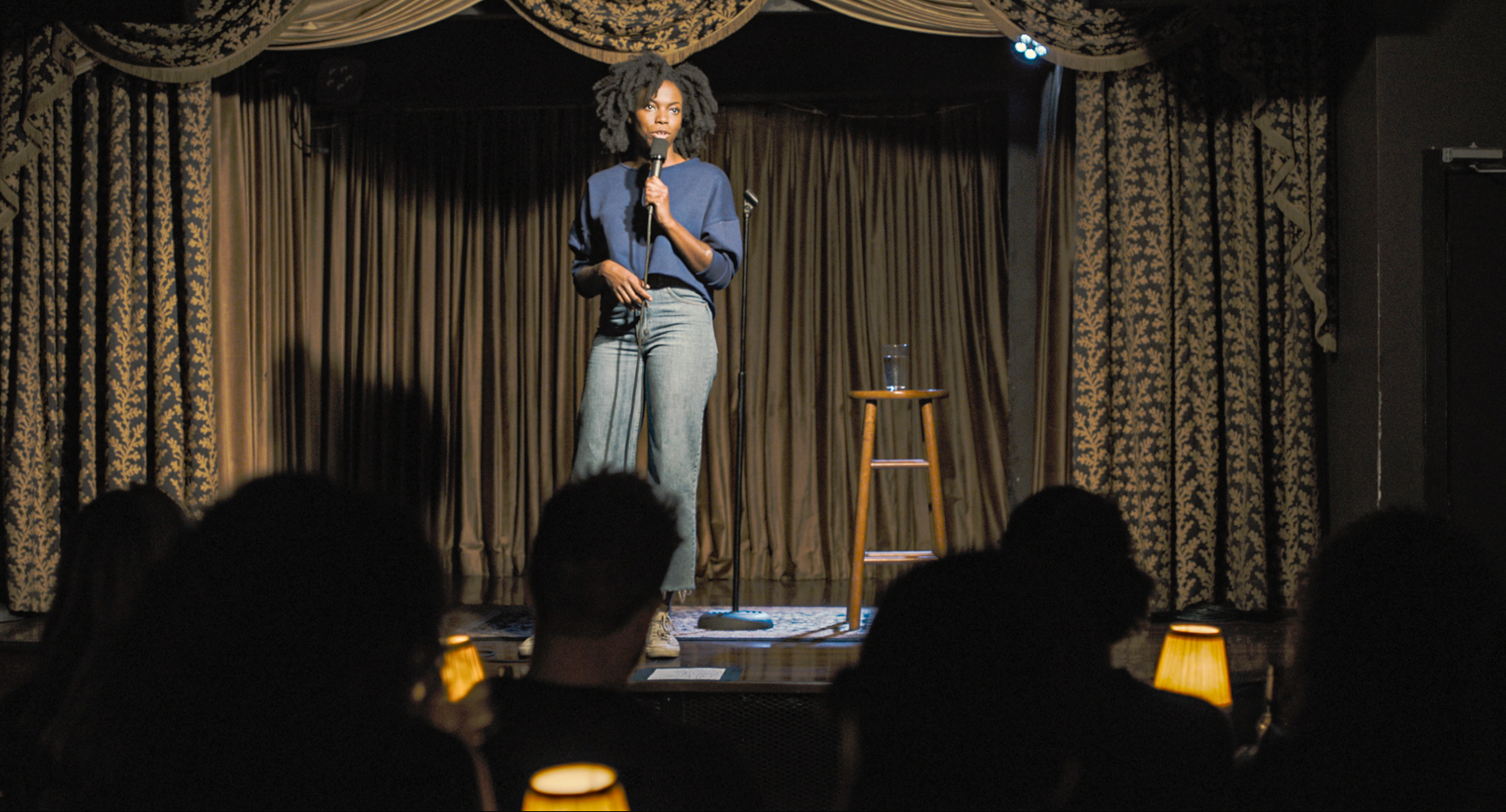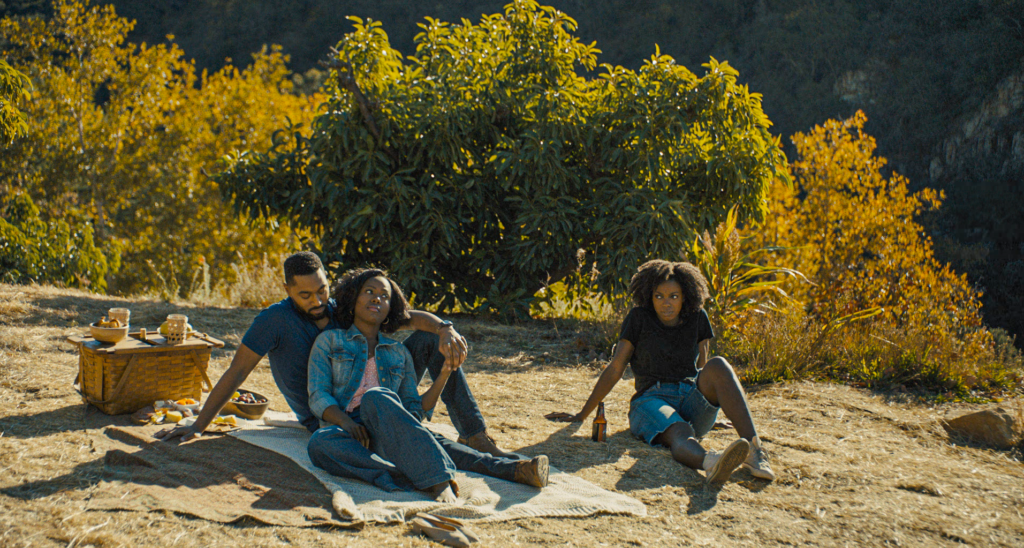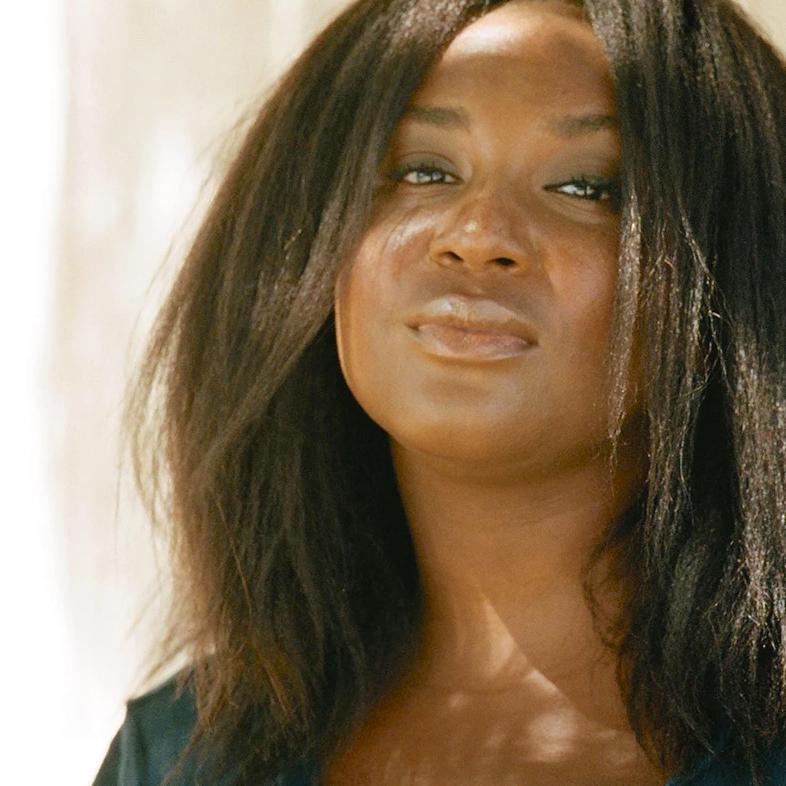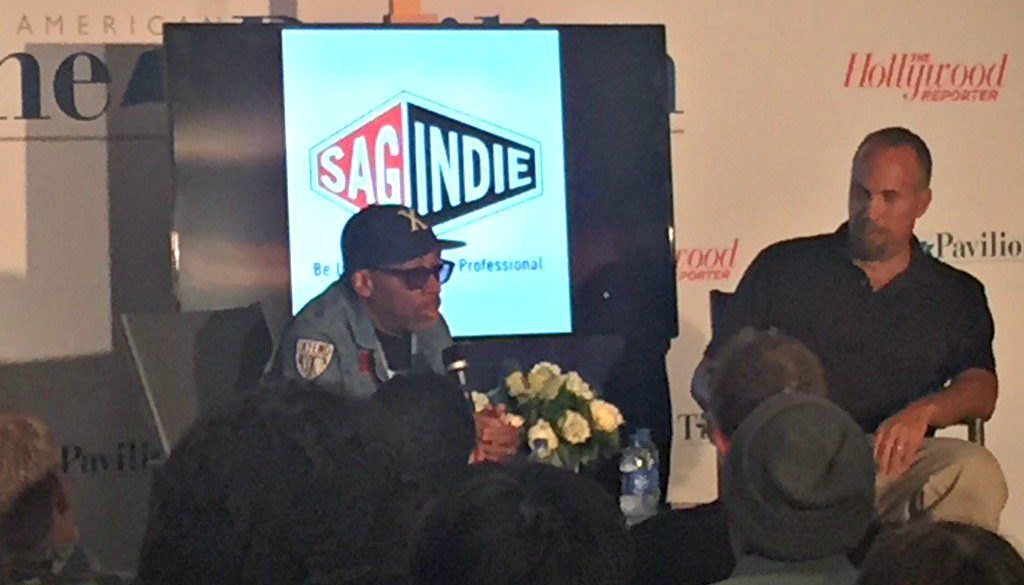Toronto-born, L.A.-based screenwriter/director STELLA MEGHIE didn’t necessarily set out to become a filmmaking “overnight sensation.” Meghie already had a career in fashion PR before she left to attend film school in London. Her feature debut, 2016’s Jean of the Joneses, landed her an Independent Spirit Award nomination for Best First Screenplay and paved the way for her next (higher-budget and higher-profile) gig. In 2017, MGM hired her to direct the teen romance Everything, Everything, which made her the only black woman to direct a studio film in wide release that year. So, with one indie and one studio film under her belt and her profile on the rise, Meghie chose to scale things back again for her next film, the new indie comedy THE WEEKEND.
The Weekend centers on standup comic Zadie (Sasheer Zamata), who spends a B&B getaway as the third wheel to her ex (Tone Bell) and his new girlfriend (DeWanda Wise) – until a handsome stranger (Y’lan Noel) arrives and things go from awkward to… more awkward. Kym Whitley co-stars in the film, which premiered in Meghie’s hometown at the 2018 Toronto International Film Festival, before going on to screen at AFI Fest, SXSW, and Tribeca. The Weekend will now hit select theaters and digital/VOD on September 13, via Lionsgate.
Stella Meghie was nice enough to take time from her busy schedule (she’s finishing up her next film, the Issa Rae/LaKeith Stanfield-starring romance The Photograph for Will Packer Productions) to talk with SAGindie about her career and the making of The Weekend.
——
COLIN McCORMACK: Your career path from Jean of the Joneses to Everything, Everything sort of followed the idealized scenario for most indie filmmakers; making a splashy indie then getting hired by a studio. What was it like processing that transition when you were going through it?
STELLA MEGHIE: It happened really quickly. It was strange because it took forever to get Jean made. I feel like I had that script for six years at least, and then I made it and went to SXSW and got signed to CAA a few months later. Everything, Everything was literally the first script I read there, so it was strange because it had taken such a long time to get something off the ground and then before I knew it, I was pitching for a studio film and getting it; it was greenlit really quickly. So, there was not any time to process it, in a way. But I kind of knew at the time after Jean that I really needed to try to capitalize on the premiere at SXSW and quickly get to my second film. I feel like I didn’t really process it, I just tried to seize as many opportunities as I could.
CM: When you were writing Jean and The Weekend, were you writing with production in mind – things that you knew would be feasible on a budget to do yourself?
SM: Jean I don’t think as much; there were a ton of locations. I probably scaled it back a bit right before I shot after we got the money and the funding. I trimmed some pages and looked at locations and looked at it all with a more economical eye… With The Weekend, I looked at it more of what I could get from this one location and then was very strategic in the additional location we used.
CM: Had you written The Weekend before you directed Everything, Everything?
SM: Yes, I had. I had written it before I made Jean. I had been like, “Well, if Jean’s not going to get off the ground, I want to write this chamber comedy that maybe could be easier to pull together and produce by myself.” But I ended up making Jean and being able to do [The Weekend] after Everything, Everything a little bit bigger than I’d imagined.
CM: When you are working between those different budgets – your low-budget indies and the studio [movie] – does it feel significantly different in the day-to-day of directing? Or is it that regardless of how much or little money you have, you’re worrying about the same type of stuff?
SM: The actual job of it stays the same. Every single day you go in and every scene you shoot, it’s figuring it out and getting the scene. Every day is about getting each scene and being happy with it. So in that sense, the work, the camera setups, the jobs, those are all the same. You just have the feeling of trying to get it right all day. The big difference is you look around on a smaller set and there are a ton less people there.

CM: In terms of the people on your set, how did you end up getting your cast together for The Weekend? It’s such a small group of people, I’d think the chemistry would need to be right.
SM: We kind of just cast it like I was the casting agent. I didn’t know Sasheer, so Stephanie Allain, the producer, reached out to her agents and set up a Skype. She read the script, really liked it, and we talked; so she was the first one on board. DeWanda I just knew through a friend and I DM’d her [laughs]. I was like, “What are you doing this November?” And she was like, “I don’t know, what are we doing?” She was so great and excited to come and even do this supporting role for me in a small film. These are people I just want to work with and sometimes you’re trying to create a family out of the community around you, and I think that was one of the moments with her. Y’lan was the same thing; I didn’t know him but a friend of mine was close with him and put us on group chat. Me and him grabbed lunch and I was so impressed by him. There are so many layers that people really haven’t seen of him on-camera. Then he signed on. Then through my agency, I met up with Tone Bell. So it was all very pinpointed. It was definitely like, “I want this person, this person, and this person.” And all those people said yes.
CM: Having such an intimate set, it seems like the vibe between everybody together is almost as important as the talent they’re bringing.
SM: Yeah. Oh my God, we had so much fun. It definitely did not feel like work. There are movies where they end and you’re like, “Ah, I made it through!” [Laughs] And there are movies where they end and you’re, “No!…” This was definitely one of those kinds of casts. We just had so much fun together. Everyone really got along, the chemistry was great, and we enjoyed kicking it with each other before, after, during, between setups. It was really a fun time. The kind of environment where you could just enjoy yourself and be yourself.
CM: What was your shooting schedule like?
SM: It was actually really short. How many days did we shoot? We shot like 14 days. But it was all basically at one location, so it was very doable because it was mostly shot on this beautiful estate that had all these hills and valleys. We were on set a lot, sort of just locked down.
CM: I was surprised to see it had filmed largely in Malibu. What was the location scouting process like finding that perfect place?
SM: We looked at a bunch of places. My mom runs a bed-and-breakfast, so I wrote it at my mom’s bed-and-breakfast. I had very specific ideas of what it looked like because I wrote it to kind of match her property. So we saw a bunch of things and then when we went to this Malibu estate. As we drove up the driveway, I was like, “This is absolutely it.” I could just tell. We started walking around and looking at the different locations on the property and I turned to my line producer and said, “You gotta lock this down.”
CM: In terms of it being a minimal set and minimal cast, people might think that automatically means a smoother production process. I’m sure there were hiccups along the way – were there any memorable problem-solving stories from the production?
SM: I mean, Tone Bell definitely fell off a bike [laughs].
CM: [Laughs] Who hasn’t?
SM: Yeah, he blamed it on the bike and we were all suspicious. That was the only thing. He was so great about it. I was like, “Oh no! We should shut that scene down for now,” and he was like, “No, we’re good.” That was a kind of funny story that happened.
CM: Looking at your career, before you got your master’s in screenwriting, you worked in public relations. And I believe both Justin Simien and Ava DuVernay worked in PR before they were filmmakers. I was curious if you think there are aspects of PR that come in handy as a filmmaker?
SM: Yeah, for sure. I think with PR, you’re constantly trying to understand how the public is going to react to something. I think that’s an interesting skill to have in terms of understanding how your audience might react to the stories you’re telling or the stories that they want to hear that aren’t being told. It definitely prepares you for managing people and sets and being able to walk into a room and set a direction.
CM: Did that come in handy on Jean of the Joneses? Since you were working with such a high-profile cast on your very first film, did that PR background help you come in and develop a relationship with the actors on that very first day?
SM: I never thought about that. I guess yeah, in a way. I’ve had to escort singers and actors down red carpets and get into that mindset. It’s just understanding them. As much as they’re glammed up, you have to support them because getting in front of the camera and walking the red carpet is not easy; you’re opening up yourself completely. But it’s just a respect thing, really. I was lucky to find people who really believed in my first film and were willing to believe in a first-time director and I was grateful for them to be there and they returned it. I think it’s always about bringing respect to the situation and making people feel comfortable and safe.
CM: You’re also an alum of some great filmmaker programs like Tribeca Film Institute, Nantucket Screenwriters Colony, and Berlinale Talents. How did participating in those programs help develop your voice or process as a writer/director?
SM: I think those kinds of programs are twofold: First off, when you’re accepted, it’s such a stamp of validation and real encouragement to keep going. And then if you’re lucky enough, you’re matched with someone who really gets what you’re trying to do. I’ve had such good feedback from certain mentors to really propel my writing forward into something that was closer to being produced. Having those key people to be able to push back and forth on ideas to improve the writing, they give you a support system to keep going.
CM: You’ve started directing for television. How do you like that “director-for-hire” type of work on someone else’s writing versus the projects you’ve brought to fruition yourself?
SM: TV is very different. I feel like when I go into TV it’s a bit of a different hat I’m wearing. Doing Grown-ish was interesting because it was the second episode, so they didn’t really have a style established, so I helped for their premiere to kind of establish the style. That was somewhat closer to my normal thing, but it is also that you’re walking in and it’s Kenya Barris, the showrunner, and the writers, and they have ideas of how they want it to look and you have to incorporate that into your vision. Then going into Insecure in the third season, that’s a very established look, a very specific aesthetic to it. So going in, I always try to put my spin on it, but you definitely have to be conscious of fitting into the style of a show as opposed to when I’m doing a movie and I’m creating what the aesthetic is going to be from the top myself.
CM: You’re currently in post on The Photograph. It seems like you’re going right from project to project. We talked a little bit about processing your whole experience before – do you feel like you’ve now had any time to process any of your movies and take a breath?
SM: Yeah, I think after Everything, Everything, that’s when it started to set in. Just figuring out, Wow, I’m doing this. As my friend said, “You’re not dabbling anymore.” That’s part of the reason I went and did The Weekend; I wanted to do something I wrote myself again and remember all the instincts of my storytelling. Doing The Weekend really helped ground me in who I was as a filmmaker and the kinds of stories I want to tell and the people I want to see on the screen now that my voice can have a larger reach. Being able to do that and go into The Photograph, it really has made me be more aware of where I stand as a filmmaker and what I view. I’m just incredibly lucky, quite frankly, to be able to go back-to-back and I feel energized and dedicated to continuing.

__
Thanks to Stella for talking with us about THE WEEKEND.
This interview has been edited for clarity.
If you’re an independent filmmaker or know of an independent film-related topic we should write about, email blogadmin@sagindie.org for consideration.



